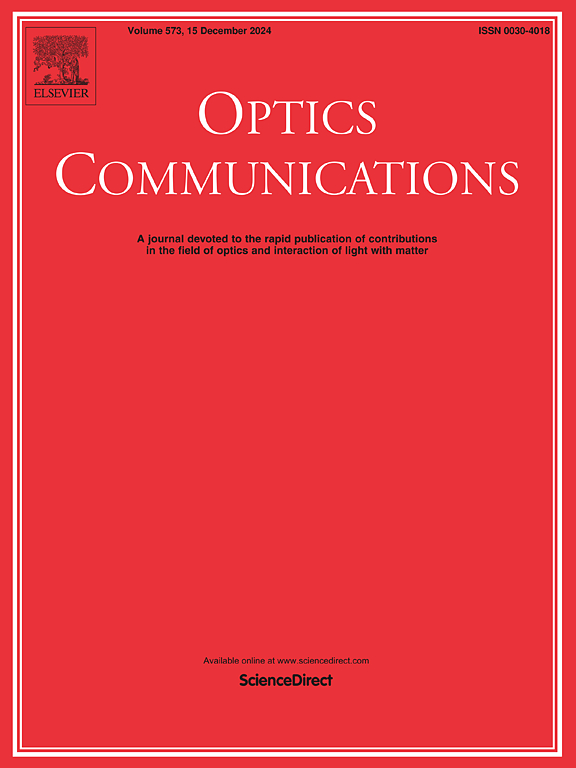Double-slot micro-ring resonators with trapezoidal subwavelength grating as ultra-sensitive biochemical sensors
IF 2.2
3区 物理与天体物理
Q2 OPTICS
引用次数: 0
Abstract
Silicon-based refractive index sensors are of significance in the detection of gases, biological substances and chemical compounds. Among these, optical microcavities can confine the optical field to the micrometre-scale region, and possess the advantages of high Q factor, small size and easy integration. In this paper, a trapezoidal subwavelength grating (SWG) is introduced into a slot micro-ring resonator, and the mode splitting is employed to enrich the supported standing wave modes and optimize the spatial profiles of the resonant modes. The modes’ Q factor is improved and the high sensitivity and low detection limit is achieved. The optimal trapezoidal subwavelength grating double slot micro-ring resonator (T-SWGDSMRR) structure is obtained by designing the structural parameters and analyzing their effects on the sensing performance parameters and spectral characteristics. The T-SWGDSMRR, designed for detecting the glucose solution, demonstrated a low detection limit of RIU and an ultra-high Q factor of up to 100825, accompanied by a refractive index sensitivity of 424 nm/RIU. Finally, a cascaded double micro-ring sensor is proposed using the vernier effect, through cascading the T-SWGDSMRR with a referential ring, the sensitivity is enhanced to 12828 nm/RIU, and the limit of detection is RIU.
带梯形亚波长光栅的双槽微环谐振器用作超灵敏生化传感器
硅基折射率传感器在检测气体、生物物质和化合物方面具有重要意义。其中,光学微腔可将光场限制在微米级区域,具有 Q 值系数高、体积小、易于集成等优点。本文在槽形微环谐振器中引入了梯形亚波长光栅(SWG),并利用模式分裂来丰富支持的驻波模式,优化谐振模式的空间轮廓。从而提高了模式的 Q 因子,实现了高灵敏度和低检测限。通过设计结构参数并分析其对传感性能参数和光谱特性的影响,获得了最佳梯形亚波长光栅双槽微环谐振器(T-SWGDSMRR)结构。设计用于检测葡萄糖溶液的 T-SWGDSMRR 具有 3.3×10-5 RIU 的低检测限和高达 100825 的超高 Q 因子,以及 424 nm/RIU 的折射率灵敏度。最后,利用游标效应提出了一种级联双微环传感器,通过将 T-SWGDSMRR 与参考环级联,灵敏度提高到 12828 nm/RIU,检测限为 3.12×10-6 RIU。
本文章由计算机程序翻译,如有差异,请以英文原文为准。
求助全文
约1分钟内获得全文
求助全文
来源期刊

Optics Communications
物理-光学
CiteScore
5.10
自引率
8.30%
发文量
681
审稿时长
38 days
期刊介绍:
Optics Communications invites original and timely contributions containing new results in various fields of optics and photonics. The journal considers theoretical and experimental research in areas ranging from the fundamental properties of light to technological applications. Topics covered include classical and quantum optics, optical physics and light-matter interactions, lasers, imaging, guided-wave optics and optical information processing. Manuscripts should offer clear evidence of novelty and significance. Papers concentrating on mathematical and computational issues, with limited connection to optics, are not suitable for publication in the Journal. Similarly, small technical advances, or papers concerned only with engineering applications or issues of materials science fall outside the journal scope.
 求助内容:
求助内容: 应助结果提醒方式:
应助结果提醒方式:


